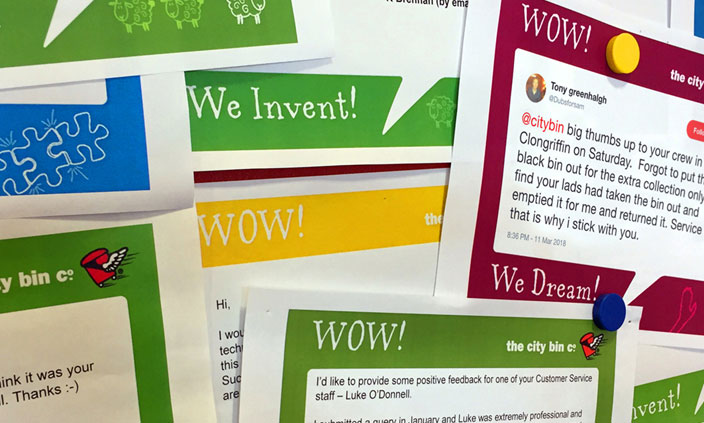
The Great Wall of WOWs!

The City Bin Co. stands out when it comes to providing amazing service experiences.
The service in question just happens to be waste collection. The City Bin Co.’s promise to customers: Job Done! We will do the job right each and every time; you will never have to listen to excuses or sad stories! However, the company isn’t singing about this from the rooftops. No sir! Their customers are the ones doing all the singing!
The company receives unsolicited written praise from their customers on a regular basis. In fact, it would be unfair to refer to these as testimonials, as they say so much more. The City Bin Co. has renamed these tributes, good news stories, and compliments as WOWs. One happy customer was so wowed by the service that she was inspired to write a poem about The City Bin Co. The WOW captures the sentiments of the customers sending them. They have been wowed by an excellent service experience delivered by The City Bin Co. The company was getting so many of these WOWs that the CEO, Gene Browne, decided to routinely circulate the WOWs by email to all staff as a means of sharing the customers’ appreciation.
Things have evolved since then and now The City Bin Co. have created and copyrighted, its own social media-inspired icon. There is an interactive on-line WOW page and to top it all off there is a Great Wall of WOW on display at the company’s headquarters. The WOW!’s comprise a variety of complimentary messages and cover topics ranging from prompt service, going over and above to help a customer, clarity of the communications, kind words for the friendly and well-mannered staff, and more. The Great Wall of WOW yells that this is a service company that really cares about its customers.
It also tells us that The City Bin Co. doesn’t merely have satisfied customers, The City Bin Co. has Fans.
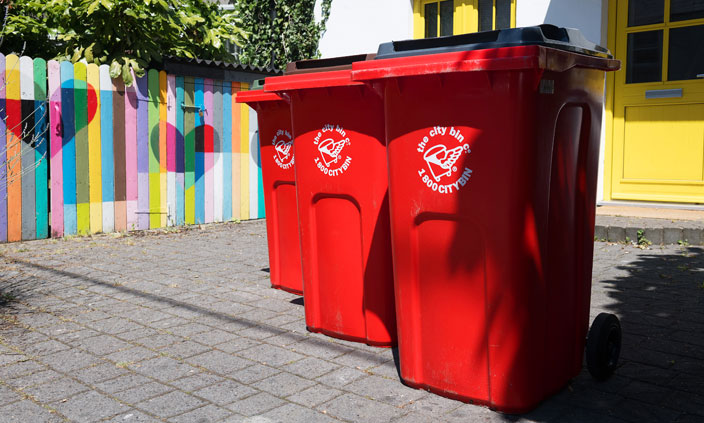
The Power Of The Red Bins!
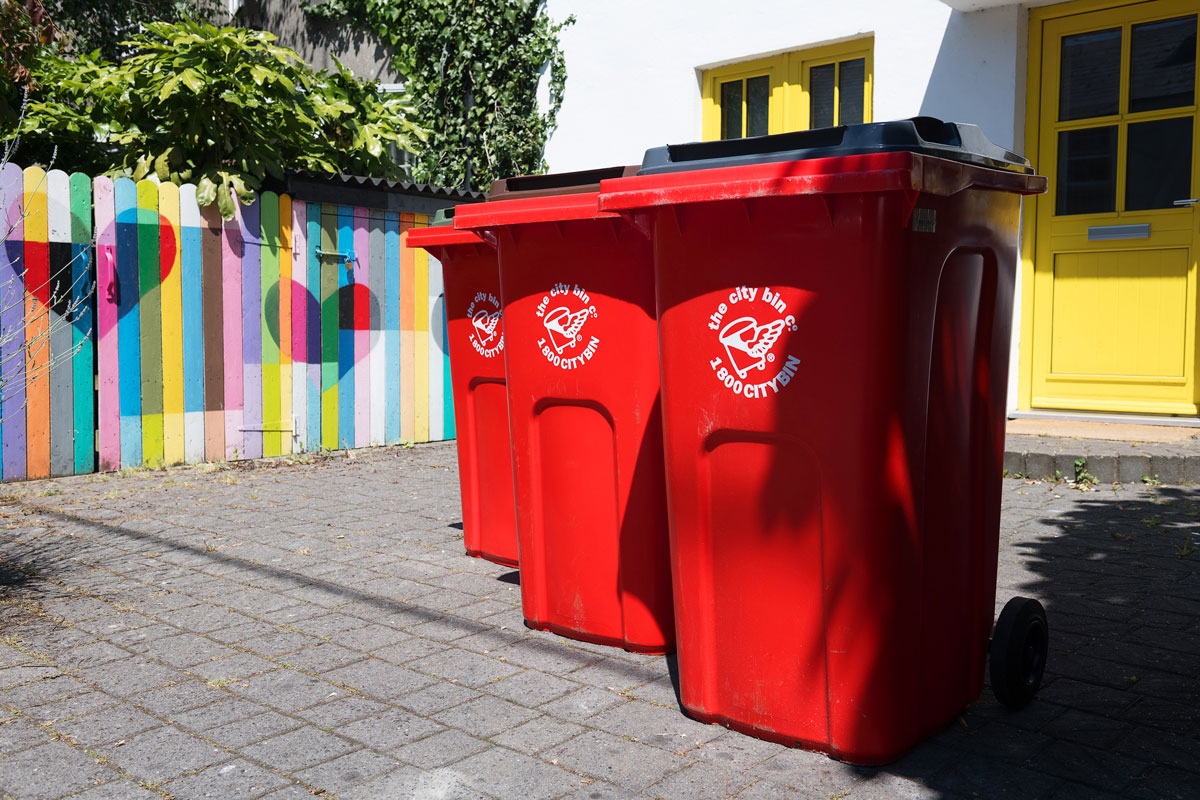
Red is the colour of The City Bin Co.’s bins, skips, trucks, uniforms, and logo.
Colour psychology is a term you don’t hear too often in business, yet the creative amongst us fly the flag for the power of colour and the effect it may or may not have on customer engagement. Red is powerful, eye-catching and enthusiastic. Red is a primary colour that gets noticed with it’s warm, exciting, and strong virtues. You only have to look at companies such as Virgin and Coca-Cola to see the values of red. Red stands out. The red bins of The City Bin Co. have become part of the personality of the company by being easily noticed and making the brand instantly recognizable. The Red bins say, ‘We are a company that is different’.
According to John Williams, founder and president of LogoYes.com, who created brand standards for Fortune 100 companies like Mitsubishi. ‘Red activates your pituitary gland, increasing your heart rate and causing you to breathe more rapidly. This visceral response makes red strong and energetic.’ You can count on our red bins to evoke a passionate response!
What colour do you associate with your business or yourself?
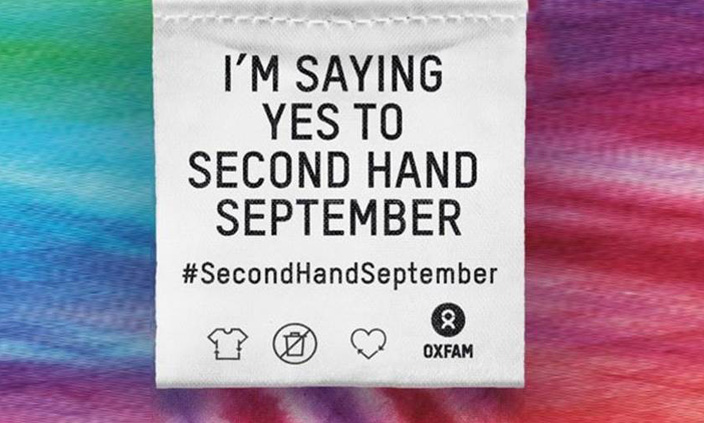
Second-hand September
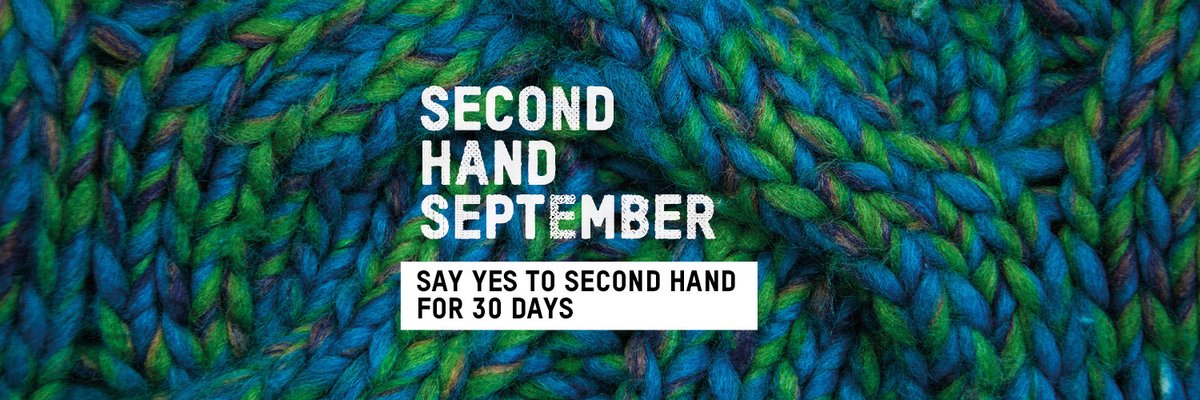
Way back when, hand-me-down jumpers and second-hand shoes from your brothers, sisters or cousins were completely normal! I recall on one occasion growing up, saving up and buying a new pair of Nike runners. I was so excited about my new kicks, however, being the same shoe size as my brother and father, it was a race to the shoes every morning.
Some harsh facts about the throwaway fashion industry we have gotten accustomed to:
- 35% of materials in garment supply chains are wasted.
- In Ireland, 225 tonnes of textile are dumped every year.
- In Ireland, half a tonne of clothing is dumped into a landfill every minute. That amount produces over 12 tonnes of carbon emissions – the same as driving 65,000 kilometres in a car.
- Buying just one white cotton shirt produces the same amount of emissions as driving 35 miles in a car.
Throwaway fashion is putting increasing pressure on our planet and its people – and it’s not sustainable. By changing our shopping habits, together we can help tackle the growing issue of fast fashion. Some great solutions are the rental and swapping fashion models, which eliminate the risk of panic buying for one occasion (for which Instagram has a lot to answer for) that feeds into the fast-fashion cycle.
Oxfam has come up with an initiative offering a solution to throwaway fashion and the devastating impact it is having on people and the planet. Oxfam’s #SecondhandSeptember urges people to rethink the month that is usually associated with Fashion week and the start of autumnal shopping and put away their credit cards to help save the planet.
Why not shop second-hand for 30 days? Firstly, you will save money. Secondly, if you shop in charity shops, you will be GIVING money to people and organisations in need. Thirdly, you will be helping save the planet. There are so many benefits in getting involved in this pledge to say NO to buying new clothes for the month. Who knows, you may even enjoy finding hidden gems and saving money so much that you decide to keep it up!
Where to shop second hand:
- Local charity shops (Oxfam have 47 shops around Ireland – find your nearest store here
- Vintage stores in your area
- Depop
- Host a clothing swap with your friends (with appropriate social distancing measures!)
- If you have an occasion coming up why not rent a piece from Borrower’s Boutique or Rent the Runway.
- Subscribe to Nu Wardrobe and join a community of swapping and borrowing clothes
Sign-up and start #SecondhandSeptember at any time here, for top tips, inspiration and more to make the pledge as easy as possible.
Best of luck!
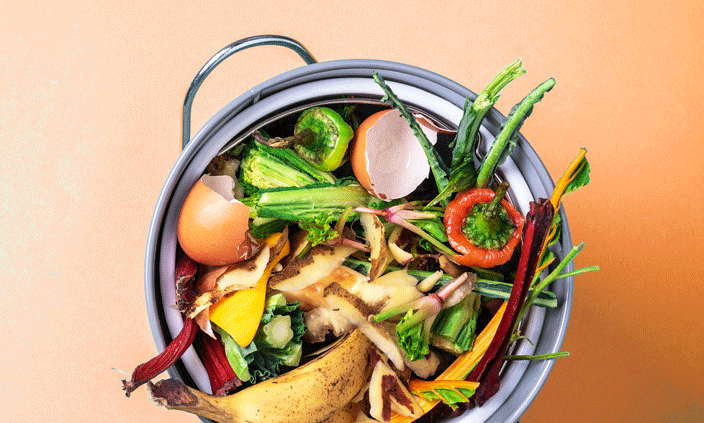
4 Easy Ways To Save Money With Your Brown ‘Organic’ Bin
Recycling is one of the most positive ways for us to have an impact on the world in which we live.
We read the papers and watch the news where we witness the well-documented consequences on the global ecosystem as the world’s population grows and produces increasing amounts of waste. Indeed, we have seen unusual weather patterns ourselves over the past months and years.
In today’s world of bin collection, the smart choice to use the brown and green bins to their fullest will determine the impact not just on the environment but on personal finance. The main cost to your bin collection is based on the weight of your black general waste bin, therefore keeping the use of this bin to a minimum keeps your prices down. Saving money with your brown bin is not just about the food waste that goes into the bin, it’s about the good habits and routines you built around using them.
Here are 4 Easy Ways to Save Money with Your Brown ‘Organic’ Bin:
- Think inside out: Use three bins inside your house to match the ones outside. Make recycling easy and general waste hard. Most waste is generated in the kitchen so put the recycling bins close by and leave the general waste bin a bit further away. Harder to get to means less use! For example, try to have your two recycling bins close to the sink and put your waste bin at the back door!
- Labels: Placing labels on your bins empowers you to make the right choices at the right times. You don’t have to be worried if you’re a little sleepy in the morning when emptying the peelings of your kiwi or when you are throwing out the empty cereal box. The signs will guide you. A great idea is to put pictures on the labels.
- Responsibility: Have one person in charge of bringing the bins from the inside bins to the wheelie bins outside and putting the bins out on your bin collection day. They can check and correct any contamination found while carrying out the chore and also pinpoint any patterns that may arise to other users. This brings a sense of ownership and pride to the recycling process.
- Measure Your Recycling Success: As the old saying goes, “if you measure it then you will improve it”. Make your recycling results visible by posting them on the fridge or on the wall above the bins. Everyone can see the fruits of their efforts. The City Bin Co’s, “Bindex” is your monthly recycling report showing you all your recycling stats over the previous months. The month on month comparison chart should keep you on your toes!
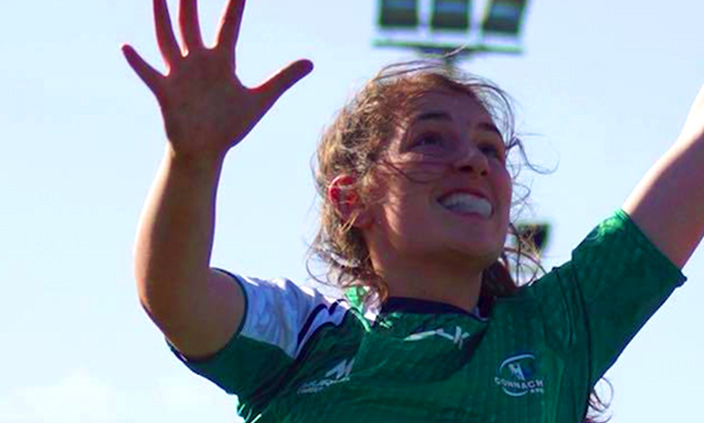
The 5 Ts: Can Rugby Teach You About Customer Service?
Rugby demands many things, some of which prove costly (teeth, crooked noses and fancy boots for example), but discipline and dedication are among its more admirable traits. In this respect, rugby reflects successful business, and discipline and dedication are crucial to both the oval ball and world-class customer service alike.
Here are our five Ts comprising the star qualities common to both; be it headgear or headset.
Training is integral to establishing a robust workplace structure and inspiring customer confidence. Customers finance the business, they’re important. They shouldn’t be passed about like a pig’s bladder from one person to the next. Adequate training (and ongoing development) gets everybody up to speed and able to tackle whatever comes their way.
Teamwork is a no-brainer. Whether it’s rookies getting up to speed learning from experienced colleagues, or interaction between management and staff, teamwork promotes support and strength.
Trust Good operations stand and fall on their ability to depend on systems and the people entrusted to make them work. Trust your team to catch the ball, bank on them tackling their player, and slap each other on the back for a job well done. Likewise, the customer has to trust the product, depend on the service, and presume it will continue without a hiccup.
Tenacity, because let’s face it, there’ll be hurdles, there’ll be glitches, and contingency will conspire against you. Tenacity empowers you to dust yourself off, take on water and get straight back into the action. How a business bounces back from adversity says as much for its history as its future. A business which has ignored or avoided problems in the past rather than acknowledging and fixing them immediately is one fast running out of a future altogether.
Talk The Wright Brothers didn’t invent the stealth bomber and Thomas Edison can’t claim floodlights, but each had a hand in the finished product. Take stock and test your products, discuss your theories and don’t be afraid to tweak them. Even the very good, can probably get better.
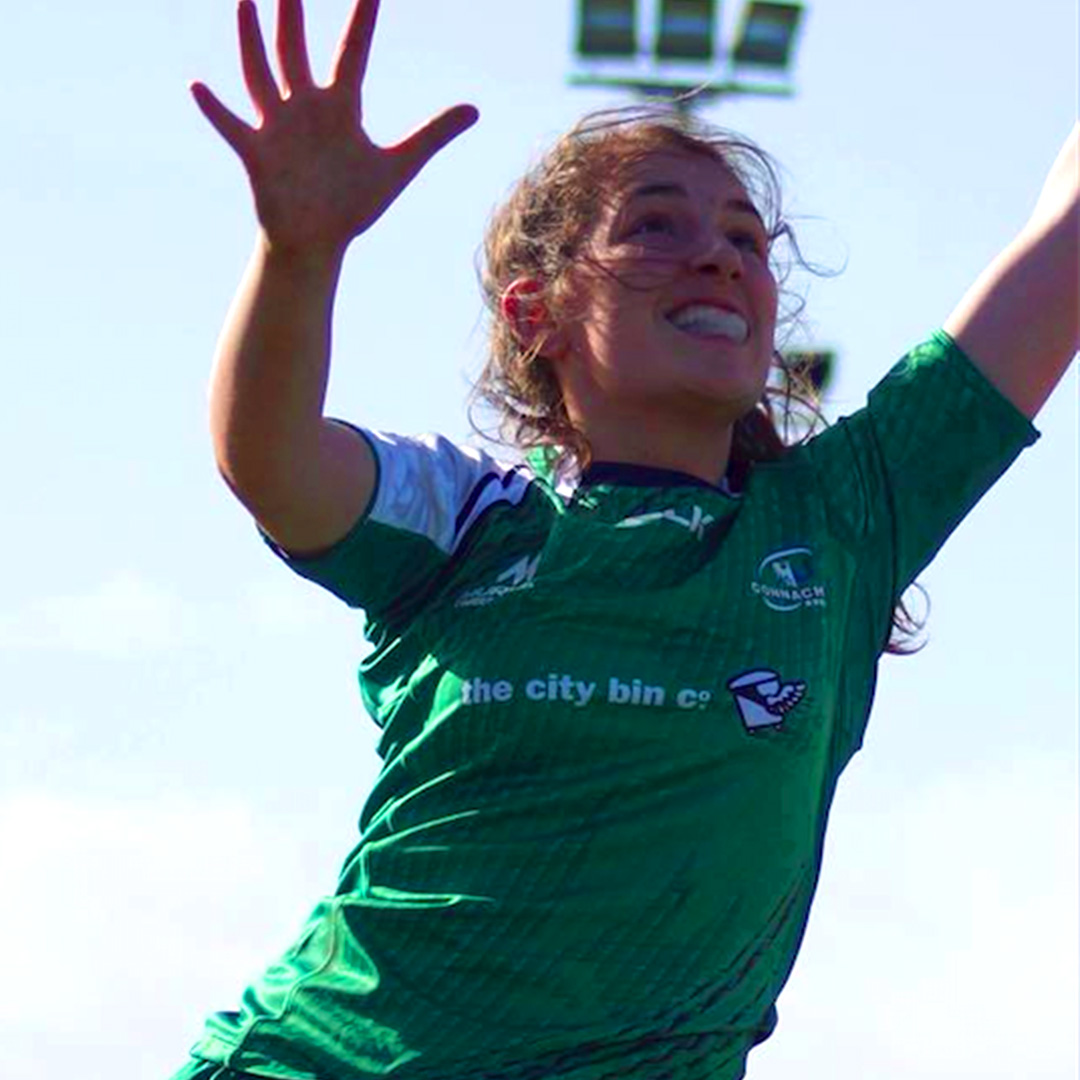
BlogPost Rugby
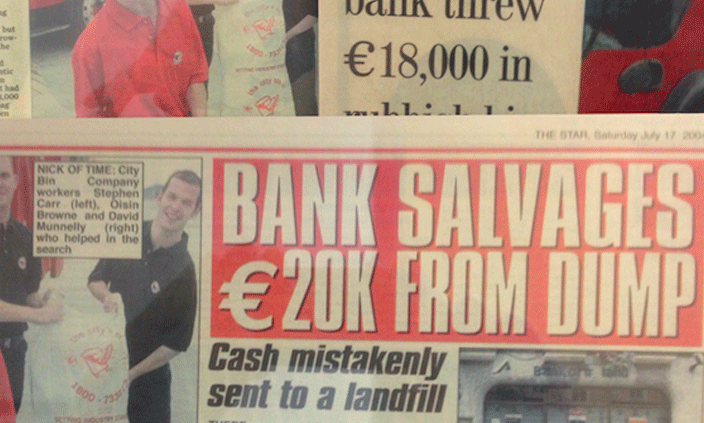
And The Bank Mistakenly Put €18,000 Into A Bin Bag…
They say there’s money in rubbish! Well, there certainly was on a Friday back in July 2004.
While collecting from Galway’s commercial sector, The City Bin Co. crew picked up from an anonymous bank a little earlier than usual. Shortly after they clocked off for the day the phone rang and the bank said some money had been thrown out by accident. It transpired the bank had mistakenly put €18,000 into a bin bag which had already been collected. Within no time The City Bin Co.’s crew began a frantic four-hour search rooting through the rubbish before they found the large sum of money neatly tied into cash bundles.
Their efforts finally paid off, and the money was found and returned to the bank. To this day the finer points remain a mystery. The nameless bank remained tight-lipped about the embarrassing slip, and the branch manager claimed “human error”. Conspiracy theories abounded, however!
It was not the first time The City Bin Co. had to mount an emergency operation to recover valuable goods. Three years earlier a precious set of Claddagh rings especially commissioned and worth €6,000 was saved several minutes before they were to be compacted.
Twitter could have communicated the news of the missing rings faster to the company then the string of phone calls, headaches and panic attacks. In both cases, there was a positive result and both stories became news items.
Although each story made headlines, I believe there would have been completely different reactions if they happened today. Twitter would have equipped each story with legs and they’d have snowballed within a quarter of an hour. The ring saga would have gone viral and created a good news buzz for all affected parties. Social media has moved the power from the journalist to the public and from the companies to the customers. Today’s stories are tweeted in real-time and the public decides what’s worth tweeting and reposting. The bank involved in the missing money drama would have been better served owning the story from the outset, tweeting the “human error” element, and likely avoiding any conspiracy theories altogether.
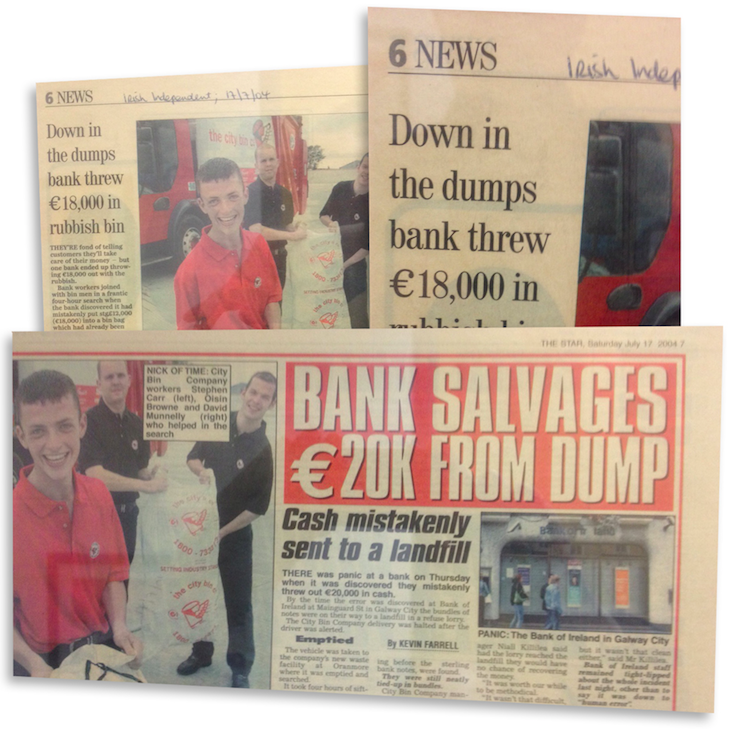
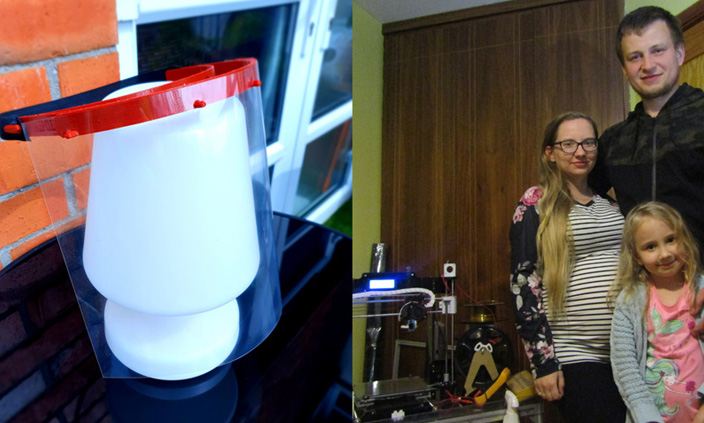
Patryk & The Visor Project
Patryk Sosinski joined The City Bin Co. 5 years ago this year. He first joined the company as a member of our waste collection crew in Galway and following an illness in 2017/8, Patryk returned to work in our Recycling Centre in Oranmore where he continues to assist customers on a day-to-day basis. To paraphrase Patryk he set about building his first 3D printer ‘out of boredom’ while he was at home recovering and during this time he designed and produced replica City Bin Co. model trucks amongst other things.
At the start of the Covid-19 crisis, The City Bin Co. identified a need for face visors to keep our crews safe but we also experienced the huge difficulty in purchasing them on the market. So Patryk suggested the idea of 3D-printing visors, and he immediately set about designing and building one in red – complete with The City Bin Co. logo. We also recognised the opportunity to supply some PPE to those who needed them, so we contacted a number of our customers and arranged to get them some of the visors free of charge.
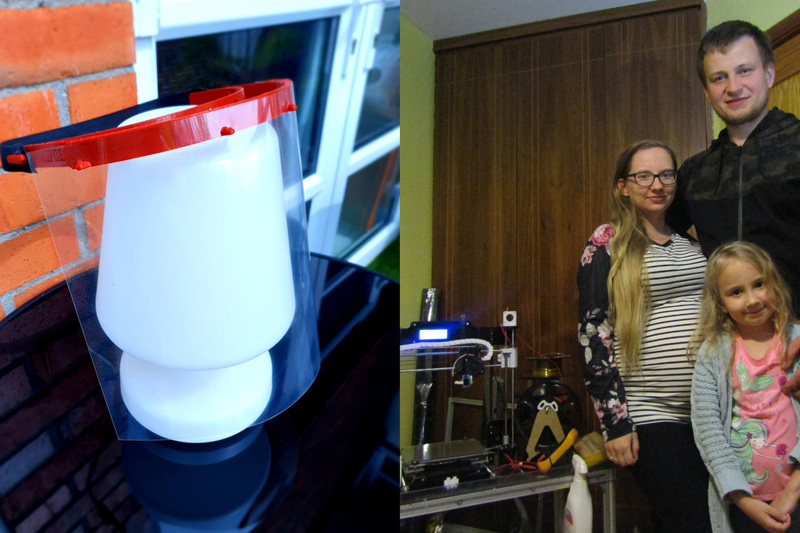
So far, Patryk, alongside his production team consisting of his wife Monika (who has just given birth to baby number two) and their five-year-old daughter Sophia, has produced a number of masks that were delivered to two of our customers – Elmgreen Nursing Home and The Brabazon Trust in Dublin.
Jeff Abbott of our Dublin Sales Team was on hand to deliver the valuable cargo and the recipients had this to say about the donation…
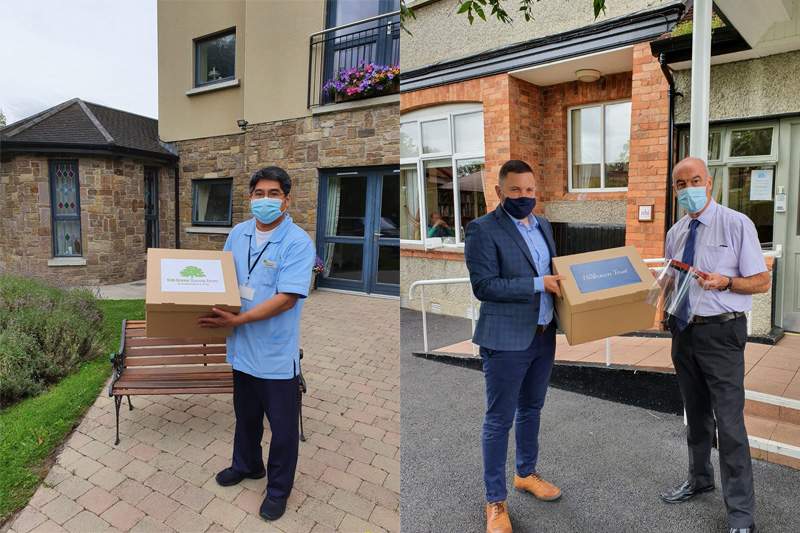
Rodolpho Aguirre – Senior Nurse Manager, Elmgreen Nursing Home. “Thank you so much for the donation of the face guards to our nursing home, we love the design and we intend to give these out to our GPs who visit us and also the physiotherapists. We love that they can also be reusable because of the material. Also thank you to Patryk Sosinski for his kindness”.
Ken Davis – Facilities Director, The Brabazon Trust. “On behalf of the Brabazon Trust, I would like to thank you and The City Bin Co. for your kind contribution of face visors which will help to prevent the spread of COVID 19. I also want to especially thank your work colleague Patryk Sosinski for his innovation and motivation in this regard. We will ensure that these visors are put to good use and it is our intention to give them to the visiting relatives and friends of our residents”.
The idea that The City Bin Co. can play our part in keeping our customers, and their customers, safe during this pandemic is a fantastic outcome for everyone in the company – but especially Patryk, who we’ll leave the last word to…
“Monika and Sophia have been fantastic, while I am at work they follow my exact instructions and at precise times throughout the day they move the components along the printer”.
Dziękuję Patryk!
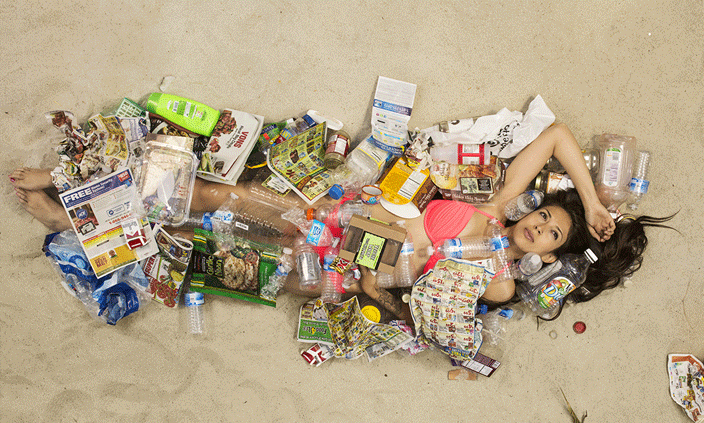
When Rubbish Becomes Art
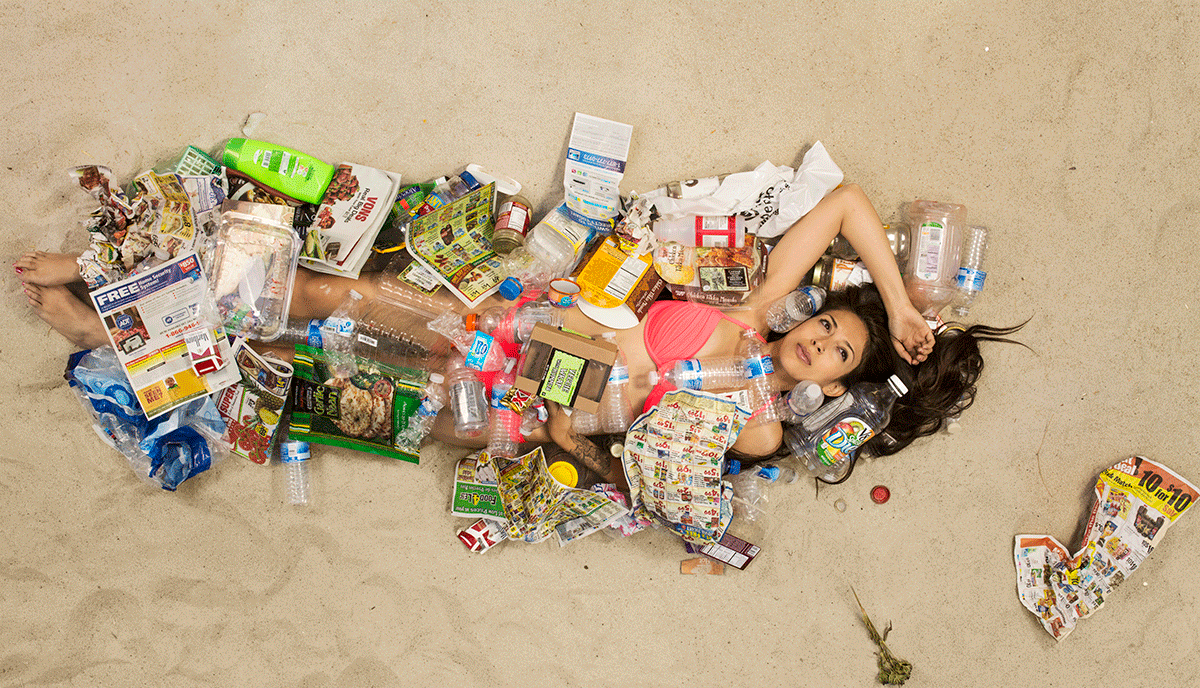
Could you imagine relaxing in seven days of your own rubbish?
Well, that’s just what Gregg Segal’s Californian neighbours, friends and strangers did! They rested in piles of their own rubbish that they collected over a period of seven days for Gregg’s photography series entitled ‘7 Days of Garbage’. Fitting that this series of life-size portraits now adorn the walls of The City Bin Co.’s offices, both in Dublin and the HQ in Galway – as a stark reminder of the dangers of a throwaway society.

Segal’s photography makes you sit up and think because the content seems so contradictory. The small volume of waste becomes big over time – imagine a month’s worth? A year? The ugliness of the waste collected over time becomes striking in the composition. You see the unnatural materials against the natural human body. The rubbish becomes art.

The photographs are a visual index of the waste that we, as humans, produce over time. It shows our changing diet patterns and the volume of packaging we seem to need to feel good about what we purchase and consume. The images were headlined in some news outlets as shocking, but we believe they are inspiring and thought-provoking. These photos deliver real statistics with a visual impact.
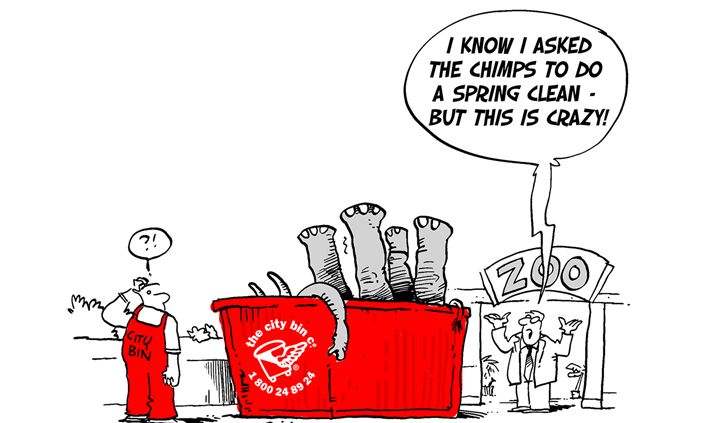
A Skip Story
Many moons ago, when I finished studying Fine Art in Sligo IT, I decided to move back to Galway and live with my parents again…
There was one problem! I left home with one suitcase and came back with a van load of personal belongings which included a bicycle, guitars, a mattress, paintings and countless other items which were probably ready to be placed in a skip. I didn’t want to let go! As there was no space in the house, I decided to store my belongings in my parent’s sizeable shed at the back of the garden. I thought since nobody really uses the shed, it would be prefect to store my baggage! I opened the door to be greeted by a full shed of belongings which had been gathering dust for the best part of 20 years, except my father’s lawnmower which was used twice monthly to trim the garden. There was no space. Not an inch!
Looking for a solution, I decided to hire a skip and give my parents the gift of a clean and tidy shed, albeit one that would double up as storage unit for my belongings for a short time. When I contacted the waste management company, The City Bin Co., to hire a skip I wasn’t sure which size skip would be best for the job, but their customer centre was really informative and explained all the different skip sizes. After all, the shed was full to the brim. You have small skips, medium skips and large skips. Really, there are skips of all sizes for different uses. I decided to hire a medium size skip and if I needed to hire a second skip I could do that.
The skip itself arrived on a sunny Saturday morning and I opened the shed door and started the clear-out. There was a lot of broken furniture, old toys, empty containers, unused bikes, pieces of wood and a small sofa. It took me a good half day to fill the skip and clean out the shed. I even gave it a lick of paint. There were definitely a few upsides to hiring a skip and doing a clean-out that I didn’t expect.
- My mother always said that a tidy home is a tidy mind, and this is so true when it comes to clutter and junk. After I cleaned out the shed, you could actually park a car in it. There was so much room.
- They say exercise the body and the mind will follow. My arms were sore after all the lifting and throwing. It was a good workout and I slept like a baby that night.
- Letting go of unwanted items creates space for new hobbies. In my father’s case, his shed is used more often now as it’s where he stores his gardening tools and keeps his top-soil and pots.
It was a great idea to hire a skip and clean out the shed and to do something useful that would benefit others. However, I do remember, a year after I had hired the skip and cleared out the shed, my father asking me if I had seen the 50-year-old ‘high nelly’ bicycle he used to have.! It was my Homer Simpson moment! “D’oh!” Yes! It went into the skip.
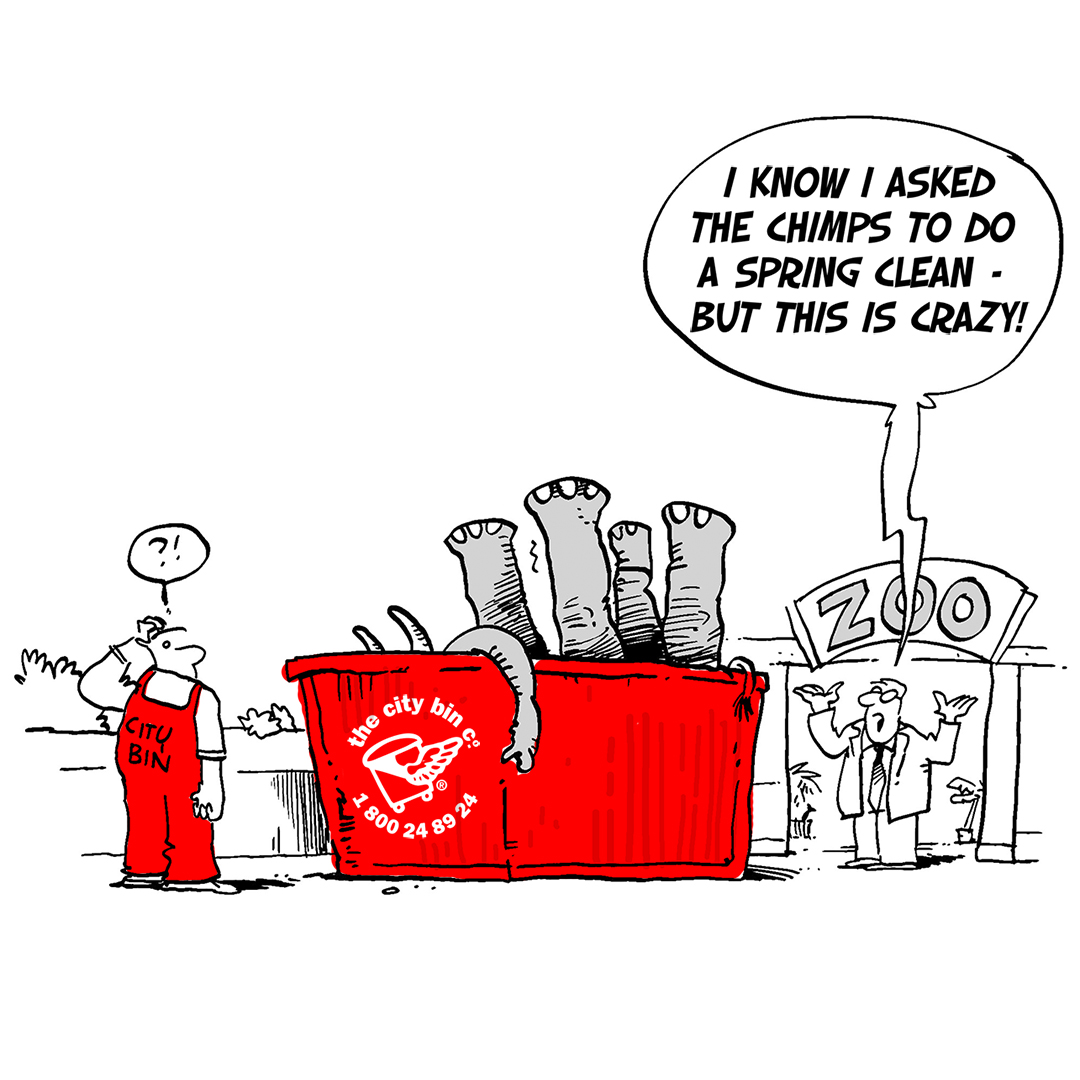
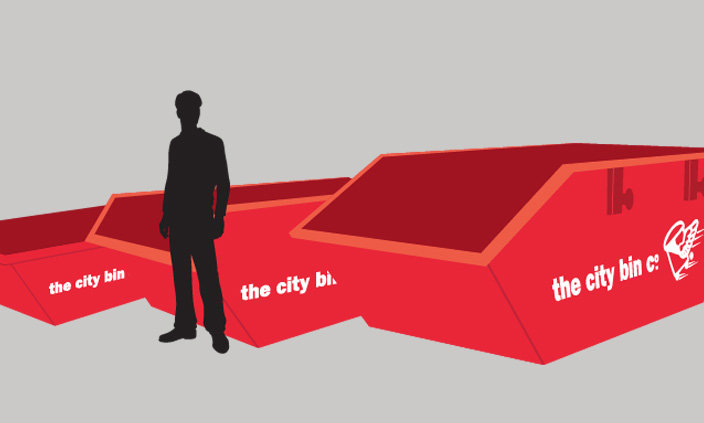
What skip size do you need? Choose the right skip for the job.
When deciding on the skip size you need, you just need to work out how much stuff you have to dump.

Our mini skip is ideal for small domestic and garden jobs – allowing you to easily dispose of waste materials without having to take regular trips to the tip. This skip size often presents the best value for any spring clean-type job. A mini skip is large enough to hold a sofa or single bed, and will fit in a standard driveway, and occupies half a car park space. It can hold the equivalent of 25-35 bin bags. Due to their small sizes, they are unobtrusive and can be placed almost anywhere to be in perfect reach of your working area.
Our standard skip is the size to order if you’re clearing out a house for renovation or sale, or a landlord clearing out an apartment after student. This size is the most popular skip used for household and commercial clear outs. It is widely used to dispose of bulky waste and will fit in a single car parking space and it holds the equivalent of 60-75 bin bags.
Our large skip is suitable for household clear-outs /renovations, bulky waste or building projects. This skip is only suitable for light waste as the skip is made of light metal, for example; plastic, paper, timber, metal, light furniture, etc. It holds the equivalent of 100-120 Black Bags.
Don’t forget we offer discounts for our existing customers. Once you’ve completed your project and filled the skip, our experienced team will collect and dispose of your waste materials.
Please note: Soil & rubble (as well as other items mentioned here) – are prohibited. And please remember not to overfill the skip!